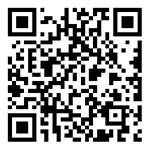Ungrouped refers to a classification system used in data organization, product categorization, and digital asset management where items are not clustered under predefined categories or groups. Instead, each element stands independently, allowing for flexible retrieval, analysis, and customization based on specific parameters. This approach is particularly valuable in industries requiring high granularity, such as e-commerce, inventory management, and content databases, where traditional grouped structures may limit efficiency or scalability.
Key Parameters of Ungrouped Products
Our Ungrouped solutions are designed with precision, focusing on core parameters that ensure optimal performance and adaptability. Below is a detailed breakdown of these parameters:
List of Essential Parameters
- Identifier Code: A unique alphanumeric string assigned to each item for accurate tracking and reference.
- Metadata Tags: Customizable tags including keywords, attributes, and descriptors for enhanced searchability.
- Weight and Dimensions: Precise measurements in standardized units (e.g., grams, inches) to facilitate logistics and compatibility checks.
- Compatibility Matrix: Details on interoperable systems, software, or hardware, ensuring seamless integration.
- Update Frequency: Specifies how often the item's data is refreshed, critical for real-time applications.
- Access Level: Defines permissions for viewing or modifying the item, supporting security protocols.
Technical Specifications Table
| Parameter |
Description |
Default Value |
Customization Options |
| Storage Format |
File type or database structure used (e.g., JSON, CSV, SQL). |
JSON |
XML, CSV, Custom Schemas |
| API Accessibility |
Availability through RESTful or GraphQL APIs. |
RESTful API |
GraphQL, Webhooks |
| Data Encryption |
Security level for data at rest and in transit. |
AES-256 |
Custom Encryption Protocols |
| Response Time |
Average latency for data retrieval queries. |
<100ms |
Configurable Caching |
| Scalability Limit |
Maximum items supported without performance degradation. |
10 million items |
Elastic Scaling |
Ungrouped FAQ
Q: How does Ungrouped differ from traditional grouped systems?
A: Traditional grouped systems organize items into categories or hierarchies, which can create bottlenecks in retrieval and updates. Ungrouped systems treat each item as an independent entity, enabling faster access, easier modifications, and better support for large-scale, dynamic datasets without the overhead of category management.
Q: What industries benefit most from Ungrouped solutions?
A: E-commerce platforms use it for product catalogs with unique attributes; logistics companies apply it for parcel tracking; digital media libraries leverage it for asset management; and financial institutions utilize it for transaction records. Any sector requiring high flexibility, real-time updates, and granular data control finds Ungrouped systems advantageous.
Q: Can Ungrouped items be linked or related to each other?
A: Yes, through relational metadata or custom linking parameters. For example, items can be connected via shared tags, keywords, or external identifiers, allowing users to create dynamic relationships without rigid group structures. This supports complex queries like "show all items with similar attributes" without predefined categories.
Q: What are the scalability challenges with Ungrouped systems?
A: Primary challenges include increased storage demands for metadata and potential latency in querying large datasets. However, these are mitigated through optimized indexing, distributed databases, and caching mechanisms. Our solutions are designed to handle up to 10 million items efficiently, with elastic scaling options for larger needs.
Q: How is security managed in an Ungrouped environment?
A: Security is enforced through item-level access controls, encryption protocols (e.g., AES-256 for data at rest), and audit trails. Each item can have unique permissions, ensuring that only authorized users can view or modify specific data, making it suitable for compliance with regulations like GDPR or HIPAA.
Q: Are there tools for migrating from grouped to Ungrouped systems?
A: We provide automated migration tools that parse existing grouped data, extract individual items, and assign unique identifiers and metadata. The process includes validation checks to prevent data loss and support for common formats like CSV, XML, and JSON to ensure a smooth transition.





